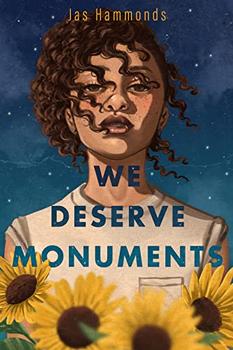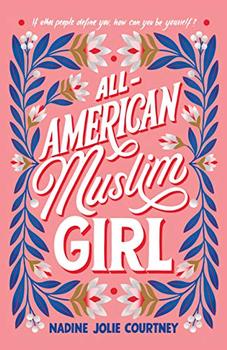Summary | Excerpt | Reviews | Beyond the book | Read-Alikes | Genres & Themes | Author Bio

Adib Khorram's debut novel crosses cultural boundaries to tug at heartstrings and remind us of the importance of kindness. While the protagonist, Darius, has a unique voice, his troubles are familiar and relatable. I rooted for him throughout the novel, hoping that he could open up and see things in a better light.
At 15 years old, Darius doesn't feel Persian enough for his mother, because even his eight-year-old sister Laleh speaks better Farsi. He thinks his father, a successful architect, sees him as a failure. At school, Darius is teased by the other boys, and he's never had a true friend. When Darius's grandfather, who he has only met through weekly Skype calls, is diagnosed with cancer, the family takes its first trip to Iran. There, Darius meets the extended family he's never known, makes a friend, rediscovers old passions, and explores his cultural heritage.
When we first meet Darius, selling tea and referencing The Hobbit by referring to the water boiler as "Smaug the Terrible" and "Smaug, the Chiefest and Greatest of Calamities," I worried that Khorram had written a cliché "nerd" character. Initially, I found the narrator's "proper noun-ing" of people and situations off-putting (a problem is referred to as a "Level Five Disaster" and the peers he doesn't understand are "Emotionally Compromised Vulcans"), along with the author's one-line paragraphs, and frequent section breaks. My initial aversion slipped away after a few chapters, and I found Darius's distinctive voice to be a huge strength of the novel. The fantasy and sci-fi references became the touchstones necessary to help both Darius and I through the unfamiliarity of Iranian culture and customs. While I have little experience with Farsi, Iran, or being a fractional Persian, I never felt lost, or, at least, never more lost than Darius.
The novel's characters are truly its greatest strength. This is a book about interpersonal relationships and internal conflicts; almost all of Darius's relationships teach him something new. For example, his relationship with Laleh is realistic and movingly-rendered, while also demonstrating the frustrations, doubts, and jealousies inherent in having a much-younger sibling. Darius feels relatively comfortable with Laleh, while he struggles to connect with other characters due to his depression. In the afterword, Khorram says, "Living with depression can mean getting stuck in cycles of misunderstood motives, of always imagining the worst in people, or thinking they are imagining the worst in you." We see this in how Darius reacts to bullying at school, how he tries to make friends with his grandparents' neighbor Sohrab, and, especially in how he interacts with his father, Stephen, who also has clinical depression. The two don't talk much, and when they do it's usually tense. Khorram fully explores this father and son dynamic in a way that is satisfying and fits into the larger themes of the piece, while demonstrating that depression does not always manifest in the same way. The moments of silence in Darius' relationships are just as important as his conversations, and his inability to express himself is his greatest source of conflict.
Darius' lack of self-expression, particularly with matters of emotional significance, seems to tie in to a larger statement about masculinity. This is a book about a young man, for young men. While I enjoyed reading the novel as a woman, there were many instances where Darius's experience is distinctly male (including a locker room discussion of circumcision that Darius refers to as "penile humiliation" for the rest of the novel). As he begins to build a friendship with Sohrab, there are several points where Darius finds himself confronting his expectations about how young men treat each other—from physical affection like a pat on the shoulder, to deep conversations and crying with a friend. This is a novel that explores emotional expression, a sometimes taboo topic for teen males.
Reading Darius the Great Is Not Okay was culturally informative, but it was so much more than that. It transports the reader into the doubts and insecurities of being a teenager, and provides a lesson on how friendship and family act as a guide toward shaping one's identity. Khorram mentions a Farsi phrase for missing someone that translates to "Your place was empty"; by the end of the book, Darius had filled a place I didn't know was empty in myself. While this novel explores places, cultures, and experiences I've never known, its emotional resonance is universal. It's a great novel for anyone who has ever felt self-defeatist, alone in a room full of family, or unsure of where they belong.
![]() This review was originally published in The BookBrowse Review in September 2018, and has been updated for the
September 2019 edition.
Click here to go to this issue.
This review was originally published in The BookBrowse Review in September 2018, and has been updated for the
September 2019 edition.
Click here to go to this issue.

If you liked Darius the Great Is Not Okay, try these:

by Jas Hammonds
Published 2024
Family secrets, a swoon-worthy romance, and a slow-burn mystery collide in We Deserve Monuments, a YA debut from Jas Hammonds that explores how racial violence can ripple down through generations.

by Nadine Jolie Courtney
Published 2021
Allie Abraham has it all going for her - she's a straight-A student, with good friends and a close-knit family, and she's dating cute, popular, and sweet Wells Henderson.
Your guide toexceptional books
BookBrowse seeks out and recommends the best in contemporary fiction and nonfiction—books that not only engage and entertain but also deepen our understanding of ourselves and the world around us.